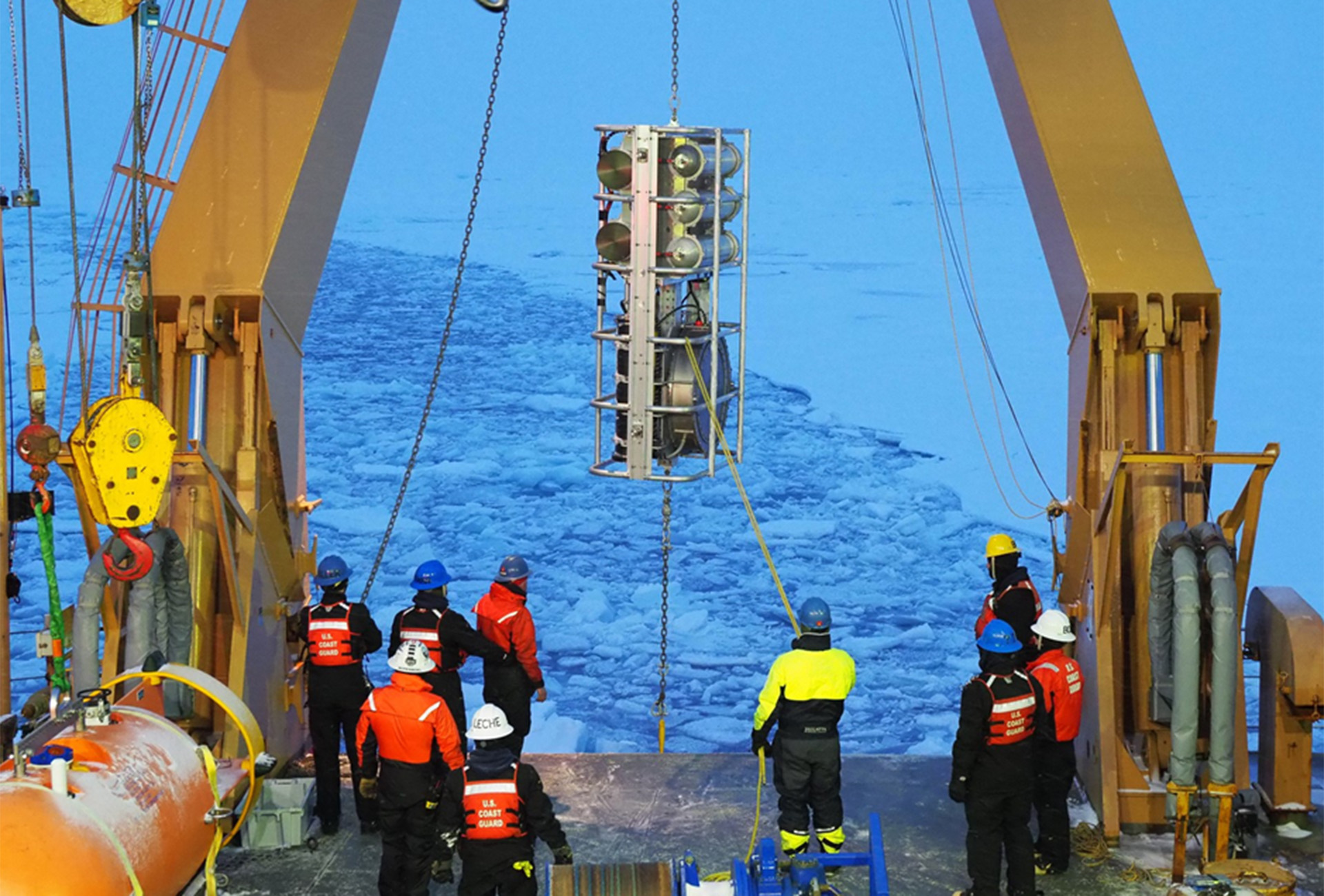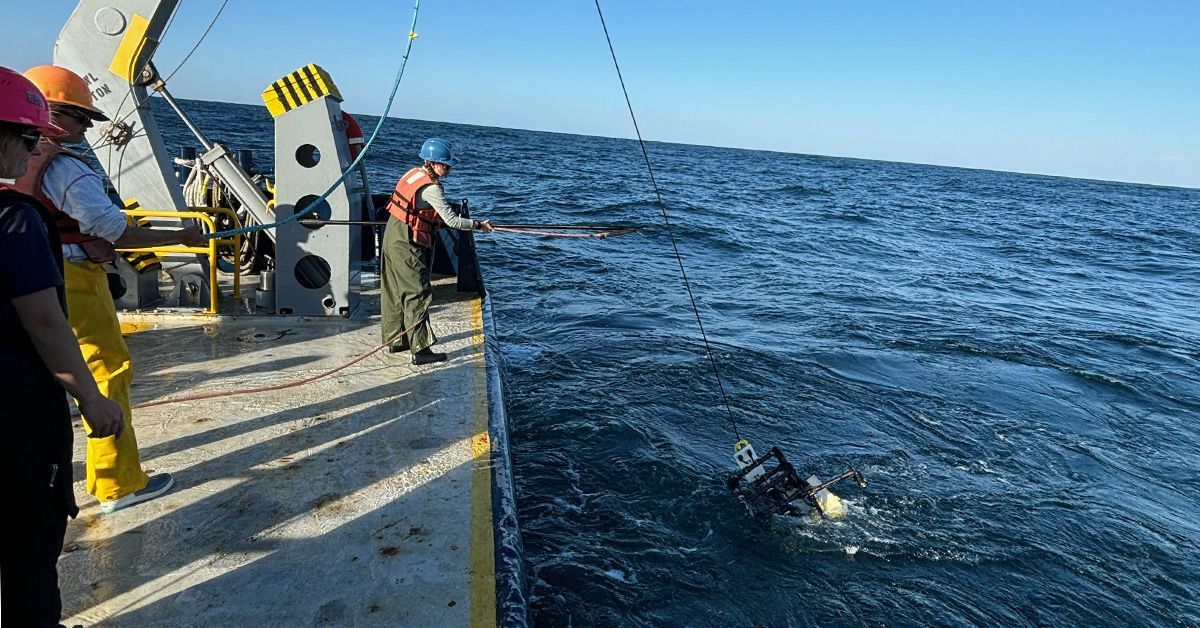UC San Diego Receives 10 DURIP Awards from Department of Defense
University tops all institutions in number of awards
Published Date
Article Content
Scientists at the University of California San Diego received 10 Defense University Research Instrumentation Program (DURIP) awards from the Department of Defense (DOD). Nine of UC San Diego’s awardees are based at Scripps Institution of Oceanography.
The DURIP awards $43 million across 64 universities to purchase equipment that will enable cutting-edge research. At UC San Diego the funds support projects ranging from underwater gliders that measure ocean circulation and improved autonomous submarine navigation to studying the impacts of undersea noise on whales. This is the second year in a row that UC San Diego has received 10 DURIP grants.
"UC San Diego is proud to have won the highest number of DURIP grants among all institutions this year," said Chancellor Pradeep K. Khosla. "This investment demonstrates UC San Diego’s success in developing novel technologies that is a hallmark of the innovative research happening across the university. The strength of our $1.73 billion in sponsored research has once again positioned UC San Diego among the world's leading research institutions."
The DURIP awards program is jointly administered by the Air Force Office of Scientific Research, Army Research Office and Office of Naval Research. The highly competitive awards program solicits proposals from university scientists conducting basic and applied research that boosts the nation's technological advantage.
“UC San Diego’s research and innovation are unparalleled,” said Rep. Sara Jacobs (CA-53), who serves as a member of the House Armed Services Committee, and has been a champion for the Navy DURIP program. “They continue to lead in research to strengthen our national security while preparing the next generation of our STEM workforce and pushing the envelope of progress and what’s possible. I’m so proud they’ve earned 10 DURIP awards from the Department of Defense to support and further their critical work.”
DURIP’s goal is to equip universities to perform state-of-the-art research that boosts the United States' technological edge, while ensuring that the country’s future science, technology, engineering and mathematics workforce remains second to none.

"DURIP awards build vital research infrastructure, advancing the exploration of novel ideas and upholding the cutting-edge capabilities of our academic institutions," said Dr. Bindu Nair, director of the Basic Research Office in the Office of the Under Secretary of Defense for Research and Engineering. "This funding helps guarantee the enduring scientific excellence of our universities, nurtures the development of the next STEM workforce, and catalyzes scientific innovations that will revolutionize military capabilities in the years ahead."
UC San Diego’s 2024 DURIP awardees:
Bruce Appelgate, Associate Director at Scripps and head of Ship Operations and Marine Technical Support
Funds will be used to upgrade the Scripps Marine Science Development Center with two advanced Computer Numerical Control (CNC) lathes to enhance the facility’s ability to create precision oceanographic instruments. These high-tech machines will allow researchers to manufacture more sophisticated and accurate scientific sensors. The improved instruments will help scientists better study Earth's ocean, atmospheric, and biological systems, ultimately advancing our understanding of the planet and the natural systems that support human life.
Simone Baumann-Pickering, Professor of Biological Oceanography at Scripps Oceanography
Funds will support the purchase of underwater instruments to better document and understand the impacts of ocean noise from the U.S. Navy activities on marine mammals, especially beaked whales. The instruments include acoustic sensors, cameras and other technologies that will form an advanced underwater monitoring system to observe how these whales behave and feed. This integrated system will help determine if underwater noise disrupts the whales' natural foraging patterns and behaviors over time.
William Hodgkiss, Professor of Applied Ocean Science and Deputy Director of the Marine Physical Laboratory
Funds will support the creation of a specialized underwater system to measure ocean currents and detect marine life using sound waves. The system combines a current-measuring device with sonar technology, all mounted on a buoy that can be anchored to the seafloor. This equipment will help researchers better understand how sound travels through the ocean and interacts with the surface and seafloor while monitoring the surrounding marine environment.
Shaun Johnston, Researcher in Physical Oceanography at Scripps Oceanography
Funds will support upgrades to underwater gliders and floats used to precisely track underwater currents that flow along layers of constant water density in the ocean. The grant will also support development of a miniature buoyancy control system that will allow the gliders and floats, which normally don’t have precise buoyancy control, to follow these density layers with greater precision. This technology will help researchers better understand water circulation in the ocean’s interior.
Ying-Tsong Lin, Acting Professor, Marine Physical Laboratory at Scripps Oceanography
Funds will support the creation of new autonomous underwater devices that can both send and receive sound signals in the ocean. These systems are designed to be flexible, with a main control unit that manages both the sending and receiving of acoustic signals. The equipment can be attached to different types of autonomous underwater vehicles, making it easier for researchers to study how sound travels through complex ocean environments.
Kenneth Loh, Jacobs School of Engineering, Professor of Structural Engineering and Director of the Active, Responsive, Multifunctional, and Ordered-materials Research Laboratory
Funds will support the acquisition of a portable motion capture system that doesn’t require physical markers to be placed on a subject’s body. The system will allow Loh and his lab to better capture and analyze human performance in real time and in diverse environments, including outdoors.
Drew Lucas, Associate Professor at Scripps Oceanography and the Department of Mechanical and Aerospace Engineering
Funds will support the creation of an innovative deep-ocean mooring system that harnesses wave power to collect real-time data throughout the entire water column, from surface to seafloor. Specifically, the grant will upgrade this system to also measure ocean turbulence and mixing, which will help researchers better understand how energy moves through the ocean. This improved system will help validate satellite measurements and enhance the ability to forecast ocean conditions by making computer models more accurate.
Florian Meyer, Assistant Professor at Scripps Oceanography and the Dept. of Electrical and Computer Engineering
Funds will support the creation of a sonar sensor that enables autonomous underwater vehicles to map the seafloor and improve their navigation.
Eric Terrill, Director of the Marine Physical Laboratory at Scripps Oceanography
The funds will support the fabrication of specialized radio frequency equipment that can measure the travel time and path loss of signals moving through the atmosphere just above the sea. Taking systematic measurements with the new devices will provide integrated measurements of the ocean waves and overlying atmosphere.
Aaron Thode, Researcher in Applied Ocean Science at Scripps Oceanography
Funds will be used to expand the capability of several autonomous acoustic vector sensor recorders. These recorders measure the direction a sound is coming from, and the grant funding will support researchers as they attempt to enhance the time-synchronization of data between individual recorders placed on autonomous vehicles.
Share This:
You May Also Like
Stay in the Know
Keep up with all the latest from UC San Diego. Subscribe to the newsletter today.




